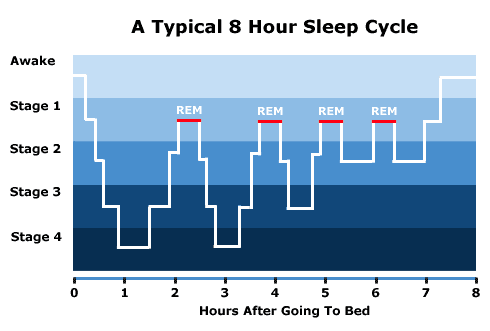Neurobites Quiz:
What aspect of sleep helps to consolidate memories and cement your learning?
a. The quality and quantity of the sleep the night before the learning
b. The deepest stage of sleep – or slow wave sleep
c. Rapid Eye Movement (REM) sleep
d. All of the above
Answer: d. All of the above
Remember to Sleep On It
The quality and quantity of all stages of sleep, both before learning something new and afterward, affect our ability to remember since sleep helps to consolidate memories. It seems relatively effortless. While you sleep, your brain is strengthening memories formed throughout the day and helping to put new facts and ideas in perspective by making connections with existing knowledge. Sleep is also the birthplace of creativity.

Next, the research started to look at brain wave activity and synapse patterns during sleep. Scientists found that we replay experiences from our day while we sleep as a way of remembering what was important. By studying the brain wave activity of rats learning their way through a maze, it became clear that certain “place cells” were activated and the specific electrical activity of these neurons was recorded. While rats were learning their way through a maze, the specific electrical activity of their neurons was recorded.
A similar thing happens to humans. During slow-wave sleep (when there is little or no dreaming), the hippocampus (important for learning) goes into over-drive sending signals to the cortex relaying the day’s sensory experiences. It seems this is how the brain transfers memories from its temporary storage location in the hippocampus to long-term storage in the cortex. This is memory consolidation.

Many questions about sleep still remain to be answered. We hope the scientists working on them remember to get a full night’s sleep.
If you’re not getting a full night’s sleep, consider using the Dreampad.




 © 2025 Unyte Health US Inc.
© 2025 Unyte Health US Inc.